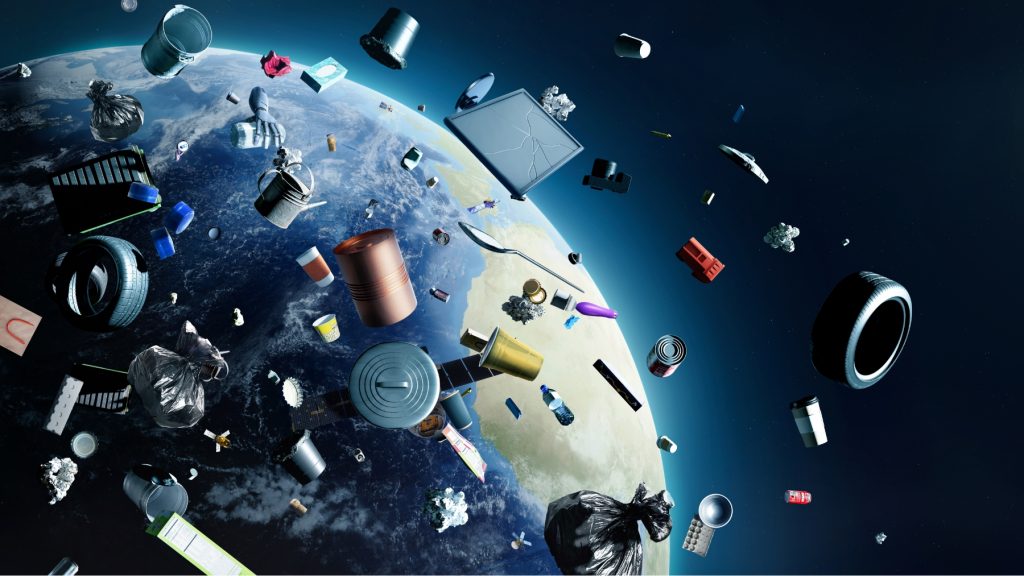
A Bit of Space Junk, Probably
Sorry to ruin either a romantic evening or a school lesson in astronomy, but whenever you gaze in wonder up at the stars, you’re also looking at thousands of tonnes of trash, just sort of hanging there about a thousand kilometres high. There are over 10,000 tonnes of rubbish in orbit right now, to be more or less exact. Please don’t imagine (despite the lovely picture above) I’m talking about empty potato chip packets or Starbucks cups. Although it would be a tragicomic metaphor for homo sapiens, wouldn’t it? Imagine. All the stuff that goes into a landfill. Now in a spacefill.
But I digress. The rubbish I’m talking about is anything from millimetre-wide screws that have parted ways with a satellite to the rather larger upper stages of the rockets that put the satellites up there in the first place.
This is something of a problem because there are also thousands of spacey things up there that aren’t rubbish and are providing numerous services to us down here on terra firma. But the rubbish keeps banging into them and rendering them as, well, more rubbish. Not only that, but detritus like the larger upper stages of satellite-delivery rockets also have the audacity to plummet back to earth on a regular basis. Those that haven’t completely fireballed themselves into ash tend to land with a hefty enough wallop to cause a great deal of harm.
So, what to do with all this space junk? Well, apparently…
The Federal Aviation Authority (FAA) Has a Plan
The FAA want space companies like SpaceX, Virgin Galactic etc. to dispose of their upper stages within 25 years of launch. 25 years being the time before a natural decay in orbit leads to an unwelcome re-entry. Among the disposal options are blowing them up (thereby creating a million new bits of space junk) or sending them to a floating graveyard (sorry, but isn’t that where they are already?).
Apparently, the number of active satellites has quadrupled in the last four years. Hence the cause for concern. I say apparently because I did the math, and it doesn’t add up. This statistic claims that in 2019, there were less than 2000 active satellites in orbit. That’s too low a figure, surely.
Another question I have is that the FAA is American. Agreed, most of the trash up there is American. Down here, too, many would say. But what about the British, Russians, Chinese, Indians and French? The FAA has no jurisdiction over these countries, and particularly the privately-owned space companies in these countries. Good luck to the FAA telling Sir Richard Branson to clean up his mess after he’s done his business.
Inside Telecom provides you with an extensive list of content covering all aspects of the Tech industry. Keep an eye on our News section to stay informed and updated with our daily articles.